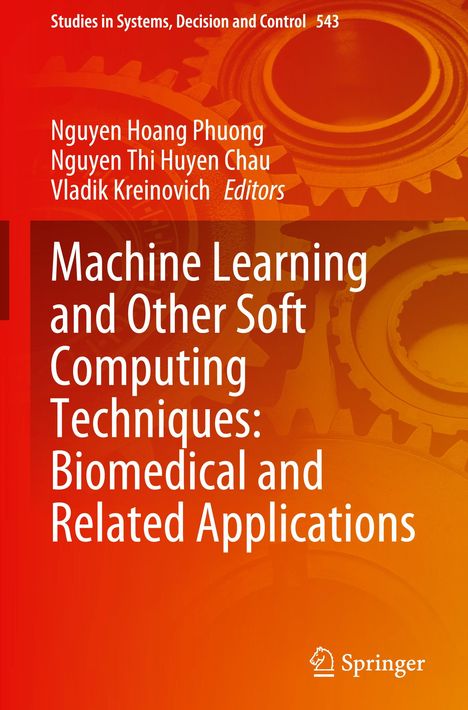Machine Learning and Other Soft Computing Techniques: Biomedical and Related Applications, Gebunden
Machine Learning and Other Soft Computing Techniques: Biomedical and Related Applications
(soweit verfügbar beim Lieferanten)
- Herausgeber:
- Nguyen Hoang Phuong, Vladik Kreinovich, Nguyen Thi Huyen Chau
- Verlag:
- Springer Nature Switzerland, 08/2024
- Einband:
- Gebunden, HC runder Rücken kaschiert
- Sprache:
- Englisch
- ISBN-13:
- 9783031639289
- Artikelnummer:
- 11946800
- Umfang:
- 264 Seiten
- Nummer der Auflage:
- 2024
- Ausgabe:
- 2024
- Gewicht:
- 613 g
- Maße:
- 241 x 160 mm
- Stärke:
- 19 mm
- Erscheinungstermin:
- 20.8.2024
- Hinweis
-
Achtung: Artikel ist nicht in deutscher Sprache!
Klappentext
This book contains applications to various health-related problems, from designing and maintaining a proper diet to enhancing hygiene to analysis of mammograms and left-right brain activity to treating diseases such as diabetes and drug addictions. Health issues are very important. So naturally whatever new data processing technique appears, researchers try to apply it to health issues as well. From this viewpoint, Artificial Intelligence (AI) and Computational Intelligence (CI) techniques are no exception: they have been successfully applied to medicine, and more promising applications are on the way. Applications of AI and CI techniques to health issues are the main focus of this book.
Health issues are also very delicate, because human bodies are complex organisms. No matter how interesting and promising are new ideas and new techniques, there is always a possibility of unexpected side effects. Because of this, we cannot apply untested methods to patients, and we first need to test these methods on other less critical applications. Several book chapters describe such applications¿whose success paves the way for these methods to be used in biomedical situations. These applications range from human / face detection to predicting student success to predicting election results to explaining the observed intensity of space light.
We hope that this book helps practitioners and researchers to learn more about computational intelligence techniques and their biomedical applications¿and to further develop this important research direction.

